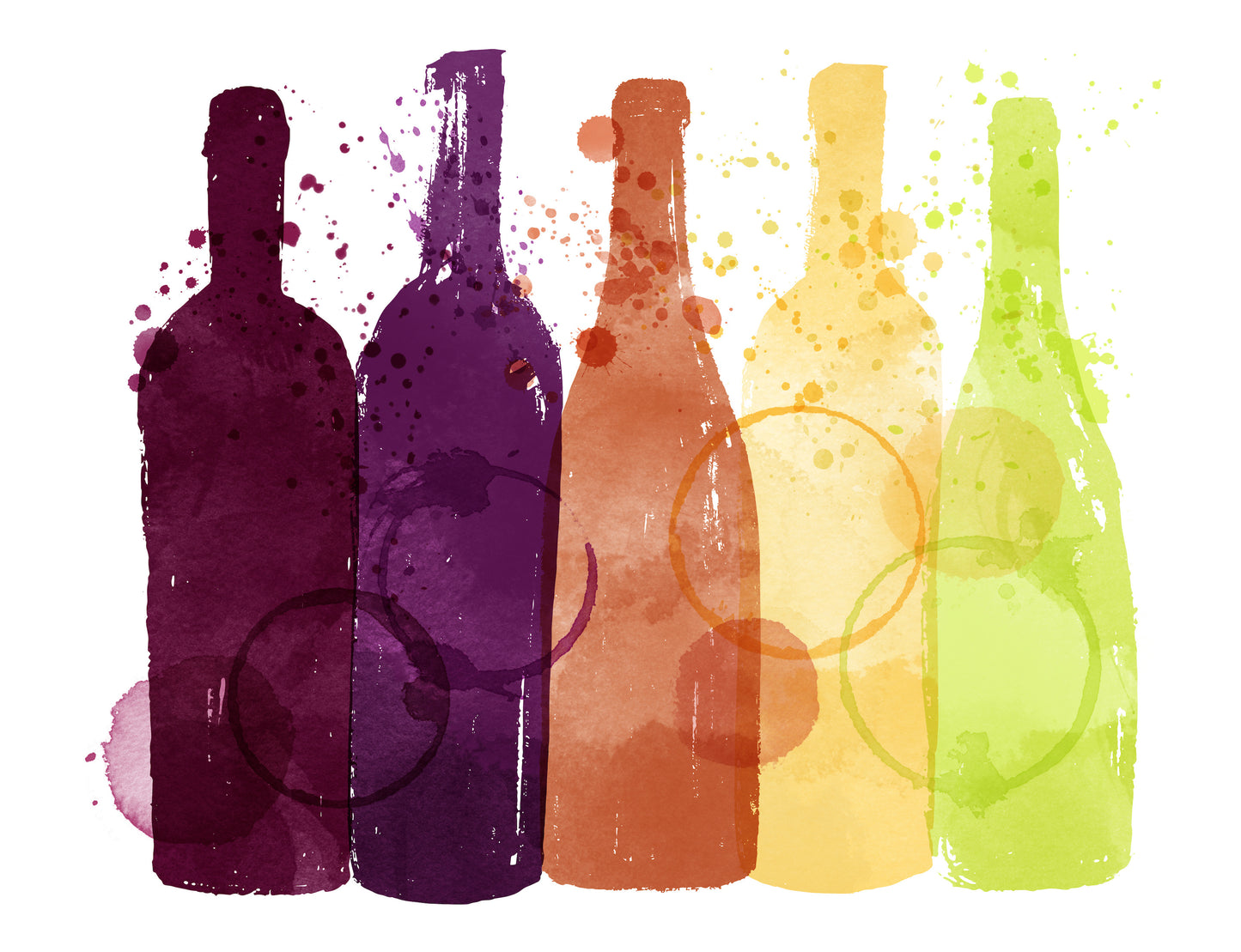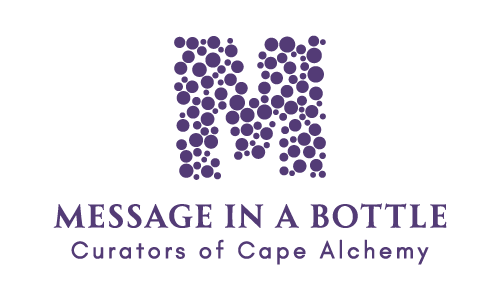
Hello everyone! It’s the first full work week and most of us are back to the grind, but the year still feels fresh and brimming with possibilities! As we shake off the dust of the previous year and step into the unfolding chapters of this new one, it's a time-honored tradition to set resolutions as compasses guiding our journey. This year, why not anchor your resolutions in the exploration of the tantalizing world of South African wines? Let this be the year you open your senses to new and exquisite flavors, broaden your understanding of viticulture, and perhaps even plan a visit to the breathtaking vineyards of South Africa. Embarking on this vinous adventure is not just about discovering new wines, but also about creating unforgettable memories and enriching experiences along the way.
When it comes to wines, South Africa may not be the first place that comes to mind for many people. However, with its unique climate and diverse wine regions, South African wines deserve more attention from wine enthusiasts. In this blog, we’ll explore 4 reasons why South African wines are worth trying!
REASON 1: South African wines are unique in taste and character
South Africa has a long history of winemaking, with vineyards dating back to the 17th century. The country boasts a diverse range of terroirs, from the sandy, windswept coastal regions to the mountain valleys and rolling hills inland. This diversity in geography creates a unique flavor profile for South African wines, which range from the crisp and refreshing Sauvignon Blanc to the bold and complex Pinotage, a wine unique to South Africa.
When compared to other New World wine regions, South Africa offers an exceptional terroir.
The western cape's Mediterranean climate, characterized by warm, dry summers and cold, wet winters, is ideal for viticulture. It’s a rarity among New World wine regions, most of which have a more continental climate.
The Cape Doctor, a notorious wind that sweeps across the vineyards, lowers the vine's disease risk while also concentrating the flavors of the grapes.
The country's diverse soil types, from decomposed granite and sandstone to shale and clay, contribute to the complexity and uniqueness of the wines.
Furthermore, the age of the Cape Floral Kingdom, the world's smallest yet richest plant kingdom, is reflected in the age and evolution of South Africa's vineyards, lending a depth and character to its wines that is hard to find elsewhere.
This combination of climate, wind, soil, and biodiversity results in wines with a distinct minerality and freshness, setting South African wines apart in the New World.
When compared to Old World wine regions, South African wines stand up remarkably well.
While Old World wine regions, such as France and Italy, are steeped in tradition with highly regulated wine making practices, South Africa's New World designation allows for more innovation and flexibility in viticulture and enology.
The country's diverse terroirs mimic some of the best in Europe, with the ability to produce both robust, fruit-forward reds similar to those from the Rhone Valley, and elegant, mineral-rich whites that could rival those of Burgundy. Yet, South African wines are distinct, often exhibiting a unique earthiness or "fynbos" note, a reference to the indigenous flora of the Cape region.
This distinct character, coupled with the advantageous pricing due to many reasons (reasons for which we can explore in another article!), gives South African wines a unique position in the global wine industry, offering exceptional quality and value that is both intriguing and approachable for a wide range of wine enthusiasts.
REASON 2: Global recognition for South African Wines
One of the most common misconceptions about South African wine is that it is of poor quality or only suited for mass production. This is far from the truth. There are many world-class wineries in South Africa that produce wines that can compete with the best in the world.
The distinctive and high-quality wines from South Africa are gaining global attention and earning a reputation as world-class products. Wine critics and connoisseurs worldwide are recognizing the finesse, complexity, and unique flavor profiles of South African wines. These wines are now seen gracing the shelves of top wine retailers and the menus of esteemed restaurants across the globe. Major international wine competitions have given South African wines high scores and prestigious awards, bolstering their reputation in the international wine market.
Additionally, wine tourism in South Africa has seen an upsurge, with wine enthusiasts flocking to wine farms to experience the extraordinary terroir firsthand. This increased global attention attests to the fine wine qualities of South African wines and their rising position in the global wine industry.
The rise in popularity of Chenin Blanc is noteworthy, as this varietal, also known as Steen, is South Africa's most widely planted grape. Chenin Blanc is gaining international acclaim for its versatility, which allows it to be crafted into a variety of wine styles, from dry and crisp to sweet and fruity. Its inherent ability to adapt to different climatic conditions and terroirs is another reason behind its growth, making it a flagship white varietal of the South African wine industry.
Pinotage is the fastest-growing red wine varietal in South Africa - Originating from South Africa, the Pinotage grape has seen an increase in cultivation due to its unique flavor profile and the global interest it has garnered. It imparts a rich and bold flavor to the wine, often characterized by notes of red fruits, chocolate, and earthy undertones.
REASON 3: Focus on Heritage Vines
The South African trade industry has made a concerted effort to preserve heritage vines, recognizing their historical and cultural significance. These old vines, often grown in unirrigated, gnarled bushvines, produce low yields of grapes characterized by intense, concentrated flavors. Wine from these vines is often of exceptional quality, and they have become a source of national pride.
Moreover, the Old Vine Project, an industry initiative, certifies wines made from old vines to encourage the preservation of these living monuments.
This focus is not merely nostalgic; it also underpins South Africa's unique selling point in the global wine market, emphasizing quality and distinctiveness.
REASON 4: Sustainable and Ethical trade practises
The South African wine industry has a robust framework of regulations and standards that emphasize fair and ethical practices. Wineries are required to comply with national labor regulations, and many go beyond this, obtaining Fair Trade certification. This certification ensures that workers get fair wages and work in good conditions, and that part of the profits are reinvested into local communities for education, health, and housing initiatives.
Additionally, the Integrated Production of Wine (IPW) scheme is a voluntary sustainability certification that many South African wineries participate in. This scheme sets out environmentally-friendly guidelines regarding water and energy use, soil health, pest management, and waste management.
The Wine and Agricultural Ethical Trade Association (WIETA) is another key player, promoting ethical trade in the wine industry. WIETA accreditation ensures wineries respect labor rights, provide safe and healthy working conditions, and prohibit unfair discrimination and harsh or inhumane treatment. These initiatives reflect the South African wine industry's dedication to ethical, sustainable winemaking, ensuring that every bottle poured not only tastes good but feels good to enjoy as well.
Discover the hidden gems of the Cape Winelands and savor the distinct taste born from centuries of wine-making tradition. After all, every bottle tells a story - it's time for you to uncover yours.
Start here: Try these flagship South African wine types and varietals and enjoy 15% off any bottle.
Here's a listing of the wines you'll find in the link.
Sparkling wines: Cap Classiques
- Domaine Des Dieux Rose of Sharon Rosé 2013 Cap Classique
- Domaine Des Dieux Claudia Brut 2016 Cap Classique
- Domaine Des Dieux Anna Louise Blanc de Blanc 2011 Cap Classique
White Wine: Chenin Blanc
- Kaapzicht Kliprug Chenin Blanc 2020
- Kaapzicht The 1947 Chenin Blanc 2020
Red Wine: Pinotage
- Kaapzicht Skraalhans Pinotage 2022
- Kaapzicht Rooiland Pinotage 2023
- Kaapzicht The Steytler Pinotage 2020
